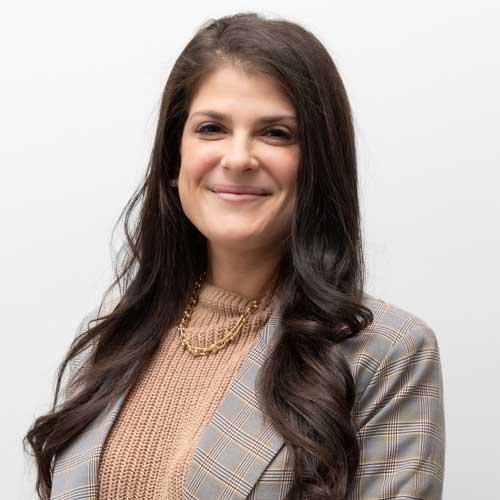In the United States, 10% of adults have had a drug use disorder at some point in their lives.[1] Substance use disorders are debilitating conditions that can affect all aspects of your life. Fortunately, it is possible to recover. At a drug addiction rehab in Greenwich, you can get the support you need from experts in the field of addiction recovery.
One of the most challenging aspects of starting the journey to sobriety, however, is admitting that you or a loved one has a problem. To do this, you have to pay attention to the early signs of substance abuse. Learn more about drug addiction, what causes it, and what signs to watch for to be able to recognize the problem in yourself and others.
Understanding Drug Addiction With A Rehab in Greenwich
Drug addiction is a chronic disease characterized by the compulsive and difficult-to-control need to use illicit or prescription drugs. For most people, the decision to take drugs for the first time is voluntary. However, after repeated use, the substance can start making structural changes in the brain that interfere with self-control. Because these brain changes are persistent, drug addiction is a relapsing disease.[2]
Drugs affect what’s called the reward circuit in the brain, flooding the area with dopamine and causing euphoria. Your brain’s reward system is meant to enforce positive behaviors that help your survival, like eating, having sex, and spending time with loved ones. When it gets flooded with dopamine because of drug use, the reward circuit identifies the experience as a positive one that should be repeated.
At the same time, repeated drug use leads the brain to make structural changes, including decreasing the way that receptors in the reward circuit respond to the drug. That leads you to use more of the substance to get the same high you’re used to, putting you at risk of overdosing. This can also render you unable to experience pleasure from anything but the substance.
Factors That Increase the Risk of Developing Drug Addictions
Anyone can develop an addiction, but some factors potentially increase the risk. One of these is if you have a mental health condition. Mental health issues can lead you to experience serious symptoms. To get relief, many people self-medicate with drugs or alcohol, leading to dependence.
Another factor is family history. Someone who has loved ones with addiction problems is more likely to experience the issue, too. This can come down to being exposed to addictive behavior early on, as well as genetic factors that are passed down.
Someone who has experienced trauma or abuse or who’s consistently experienced high levels of stress can also have a higher risk of struggling with addiction.² The same thing applies to people who have easy access to addiction-causing substances.
Learning About Early Signs of Drug Addiction With A Drug Addiction Rehab in Greenwich
The sooner you can get yourself or your loved one help after developing a drug addiction, the better. You don’t want to allow for the kind of continued use that results in structural changes in the brain. But how can you tell if you or a loved one has a problem?
Physical Signs of Drug Addiction
The type of drug you or a loved one uses will impact the kinds of physical signs and symptoms that you’ll be able to notice. Stimulants like cocaine can cause symptoms and signs like:[3]
- Rapid speech
- Decrease in appetite
- Elevated blood pressure
- Sweating
- Skin problems
- Dilated pupils
- Hyperactivity
For opioids, physical signs and symptoms include:[4]
- Weight loss
- Changes in hygiene
- Pupil constriction
- Scabs or sores
- Puncture wounds
- Coordination problems
- Nausea
- Vomiting
- Diarrhea
Benzodiazepine abuse can present with these and other physical signs and symptoms:[5]
- Balance issues
- Blurry vision
- Drowsiness
- Muscle weakness
- Dizziness
- Headaches
For hallucinogens, physical symptoms and signs include⁶:
- Muscle twitching
- Inability to feel pain
- Drowsiness
- Blurred vision
It’s important to note that drugs can differ even within their categories. In other words, the signs present in cocaine abuse may not be the same as the ones that result from methamphetamine addiction.
Behavioral Signs of Drug Addiction
Someone struggling with a stimulant addiction can display behavioral signs like³:
- Doctor shopping
- Having excessive energy
- Aggressive behavior
- Mood swings
- Impulsive or risky behavior
- Racing thoughts
For opioid abuse, behavioral symptoms include⁴:
- Doctor shopping
- Poor work or school performance
- Medication stealing
- Isolation
- Lying about drug use
- Mood swings
Someone with a benzodiazepine addiction can have the following behavioral symptoms:[5]
- Social withdrawal
- Not participating in favorite activities
- Doctor shopping
- Prescription forging
Hallucinogenic addictions can cause behavioral signs and symptoms like:[6]
- Mood swings
- Aggressive behavior
- Social withdrawal
Keeping an eye out for behaviors that are unusual for your loved one or that you’ve never experienced before can help point to substance use disorders.
Emotional Signs of Drug Addiction
Someone who has an addiction to stimulants can experience emotional signs, including the following:[3]
- Increased sense of well-being or confidence
- Anxiety
- Paranoia
- Violent mood swings
The emotional signs of opioid addiction can include the following:[4]
- Irritability
- Depression
- Paranoia
- Unprovoked outbursts
Benzodiazepine addiction can lead to emotional signs and symptoms like:[5]
- Feelings of hostility
- Emotional detachment
- Emotional dysregulation
- Sudden mood changes
Those experiencing hallucinogenic addiction might exhibit these emotional signs and symptoms:[6]
- Aggression
- Irritability
- Agitation
If you notice any of these symptoms in yourself or someone else, it’s vital that you consider the next steps. For most people, this means getting treatment as quickly as possible.
Addiction Treatment Programs: What They Can Offer
Treatment centers allow someone with a substance use disorder to safely go through the process of detoxification so that they can begin getting to the root causes of their addiction. For some people, inpatient care is the right choice. For many others, taking entire days away from their responsibilities isn’t possible. That’s where outpatient programs can make a difference.
Treatment usually consists of a combination of holistic therapy options and cognitive-behavioral therapy (CBT). CBT helps you recognize negative thought patterns and how they impact your mood and behavior. This allows you then to transform those thought patterns into more positive ones.
At rehab centers in Greenwich, you can achieve long-term sobriety by participating in extended care programs for as long as you need to. These programs can help you transition into more independent living while still knowing you have support when you need it.
It doesn’t matter whether you have just noticed you may have a drug problem or are encouraging a loved one to get help. In either case, your best option is to contact professionals ready to guide you.
Choose a Drug Addiction Rehab in Greenwich
If you or a loved one is struggling with addiction, help could be just a phone call away. At Connecticut Center for Recovery, we offer a variety of programs suited for those at different stages of addiction recovery. At our rehab in Greenwich, CT, you can create a treatment plan that suits your needs and addresses the unique challenges you face.
Don’t let yourself continue to struggle under the weight of addiction. Contact our team of experts to learn more about how to get help.
Sources:
[1] https://www.nih.gov/news-events/news-releases/10-percent-us-adults-have-drug-use-disorder-some-point-their-lives
[2] https://nida.nih.gov/publications/drugs-brains-behavior-science-addiction/drug-misuse-addiction
[3] https://nida.nih.gov/research-topics/cocaine#short-term
[4] https://www.health.ny.gov/community/opioid_epidemic/signs.htm
[5] https://www.aafp.org/pubs/afp/issues/2000/0401/p2121.html
[6] https://www.msdmanuals.com/professional/special-subjects/illicit-drugs-and-intoxicants/hallucinogens#Pathophysiology_v1027307

Alexis earned both a B.S. in Psychology and a B.S. in Family and Child Sciences from Florida State University and an M.A. in Marriage and Family Therapy from the University of San Diego. She holds licenses in Marriage and Family Therapy in Florida, Connecticut, and Massachusetts and is also a member of the American Association for Marriage and Family Therapy (AAMFT).
Alexis works with families, couples, children, and groups and also has a sub-specialty in addiction and recovery. She utilizes an integrated, systemic approach to counseling; empowering people to define what is not working for them in their lives and to discover the possibilities for making life work. In doing this, clients are guided towards identifying their strengths, accessing their resources, tapping into their potential for success, and taking action toward achieving their desired goals.
Alexis also has extensive experience in the administration of behavioral health organizations. She has developed, built, and supervised several facilities encompassing all levels of care while leading them through state licensing and The Joint Commission accreditation process.

